Supplement Ingredient Guide: Caffeine
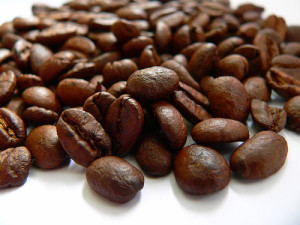
What is it?
Caffeine (methylxanthine) is a compound which acts as a stimulant to the central nervous system encouraging the increased production of adrenaline. It is found in a wide variety of drinks such as energy drinks, tea, coffee along with other soft drinks.
Indications
Caffeine is ideal for those looking for a supplement to increase alertness and possibly those looking at improving their rate of recovery. The increased alertness has also been linked with an increase in strength. Its use as a weight loss supplement is still controversial with some studies showing that a two week course can produce potent results.
How much should I take?
It’s advised that each serving should be 0.45–1.36 mg caffeine per lb (1–3 mg per kg) of body weight. One serving should be 30-60 minutes before a training session or a competition and the other serving should be straight after the workout. You can drink more or less depending on how it makes you feel.
A fat burning dose would be in the range of 200mg, although the results are directly proportional to the dose, meaning the more the better until one begins to experience side effects.
For an acute increase in strength, a dose of 500mg or more is advised.
Research
Caffeine works mostly through blockoing adenosine receptors which results in increased alertness and wakefulness. This in turn leads to stimulation of dopamine, serotonin, acetylcholine, and adrenaline systems.
Caffeine has been shown to help weight lifters lift more while under its effects. It seems that it can give a significant boost to strength to anyone regardless of their base level.
There is no doubt that caffeine increases metabolism, research has shown the increase can be by upto 10%. However what was noticed was that these effects wear out soon after. But is it enough to burn fat? Well there research within this top is conflicting. Over the short term, caffeine can burn fat, however it seems to creep back on even with continued supplementation and cardio training.
Caffeine has been shown to improve endurance by facilitating the glycogen stores within the muscle. Most studies find that caffeine increases endurance by 25%, which is rather impressive!
It is advised that caffeine should be taken after a workout session too to help with recovery. This is because the caffeine would help replenish the glycogen stores within the muscle thus allowing it to bounce back quicker. What caffeine does is it takes the carbohydrates eaten after a workout session and uses the broken down results to help refuel the muscle that stack it on as fat. A recent study found that caffeine drastically improved glycogen storage by 50-60%.
Caffeine’s effect on the central nervous system leads to an improved sporting performance since it increases cognition and coordination.
Side effects
In general, people have different levels of tolerance to caffeine, if one takes too much, symptoms like nervousness, shaking, and anxiety are fairly common. If you have never drank anything in the past containing caffeine such as coffee, tea (Black or green) then you’re advised to take only a small amount to start of with to see how you cope.
It must be noted that these side effects are short and fade with time, which is dependant on the dose you have consumed.
References
Bucci, L. (1993) Nutrients as ergogenic aids for sports and exercise. Boca Raton, FL:CRC Press.
Chad, K. and Quigley, B. (1989) The effects of substrate utilisation, manipulated by caffeine, on post-exercise oxygen consumption in untrained female subjects. European Journal of Applied Physiology. 59, 48-54.
Costill, D. L., Coyle, E. F., Dalsky, G., Evans, W., Fink, W. and Hoopes, D. (1977) Effects of elevated plasma FFA and insulin on muscle glycogen usage during exercise. Journal of Applied Physiology. 43, 695-699.
Costill, D. L., Dalsky, G. P. and Fink, W. J. (1978) Effects of caffeine ingestion on metabolism and exercise performance. Medicine and Science in Sport and Exercise. 10, 155-158.
Doherty, M. (1998) The effects of caffeine on maximal accumulated oxygen deficit and short-term running performance. International Journal of Sport Nutrition. 8, 95-104.
Ivy, J. L., Costill, D. L., Fink, W. J. and Lower, R. W. (1979) Influence of caffeine and carbohydrate feeding on endurance performance. Medicine and Science in Sports and Exercise. 11, 6-11.
McNaughton, L. (1987) Two levels of caffeine ingestion on blood lactate and free fatty acid responses during incremental exercise. Research Quarterly in Exercise and Sport. 58, 255-259.
Spriet, L. L. (1995) Caffeine and performance. International Jounal of Sport Nutrition. 5, S84-99.
Wiles, J. D., Bird, S. R., Hopkins, B. A. and Riley, B. A. (1992) Effect of caffeinated coffee on running speed, respiratory factors, blood lactate and perceived exertion during 1500-m treadmill running. British Journal of Sports Medicine. 26 (2), 116-120.
Burke LM. Caffeine and sports performance. Appl Physiol Nutr Metab 2008; 33 (6): 1319-34
Jacobson BH, Weber MD, Claypool L, Hunt LE. Effect of caffeine on maximal strength and power in élite male athletes. Br J Sports Med 1992; 2 (4): 276-80
Acheson KJ, Zahorska-Markiewicz B, Pittet P, Anantharaman K, Jequier E. Caffeine and coffee: their influence on metabolic rate and substrate utilization in normal weight and obese individuals. Amer J Clin Nutr 1980; 33: 989-97
Malek MH, Housh, TJ, Coburn JW, Beck TW, Schmidt RJ, Housh DJ, Johnson GO. Effects of Eight Weeks of Caffeine Supplementation and Endurance Training on Aerobic Fitness and Body Composition. J Strength & Cond Res 2006; 20 (4)
Bell DG, McLellan TM. Exercise endurance 1, 3, and 6 h after caffeine ingestion in caffeine users and nonusers. J Appl Physiol 2002; 93: 1227–1234.
John L. Ivy, Harold W. Goforth, Jr., Bruce M. Damon, Thomas R. McCauley, Edward C. Parsons, and Thomas B. Price/ Early postexercise muscle glycogen recovery is enhanced with a carbohydrate-protein supplement. J Appl Physiol, Oct 2002; 93: 1337 – 1344.
http://examine.com/supplements/Caffeine/ – Accessed 01/09/2013
http://www.strengthandfitnessuk.com/caffeine – Accessed 01/09/2013
 Supplement Judge Unbiased Supplement Reviews – Do they really work??
Supplement Judge Unbiased Supplement Reviews – Do they really work??

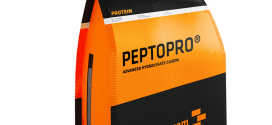
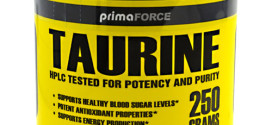
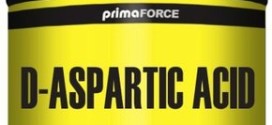
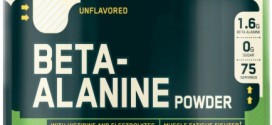
[…] ← Previous Post […]